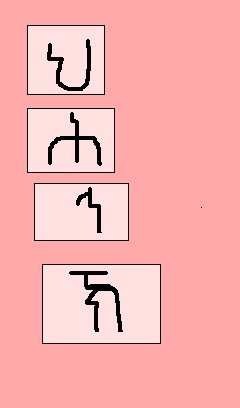By Yelibenwork Ayele
Some of our own people feel that the Amharic alphabet is cluttered with different letters for redundant sounds.
One of these people was our beloved Haddis Alemayehu, author of Fikir Eske-Mekabr and other great Amharic novels. In his works, Haddis has consistently used only one of the letters for /s/, /h/, and so on.This month Music Mayday hosted an interesting debate about the need to drop some of the letters in the Amharic alphabet. From the way Dawit Worku reported it on his blog, I feel I that I would have enjoyed listening to those who argued both for and against the motion.
I feel like sharing my thoughts on the arguments against Dr. Bedlu Waqjira who presented a study on why we must do away with the repetitive letters. My thoughts are based on what I found in Dawit’s report of the discussion.
It appears to me that some of those who stood against Dr. Bedlu Waqjira were illogical in their arguments, at least in some of their reasons for preserving the Amharic alphabet with all its repetitive letters. Here are two of their reasons which I have found very hard to swallow:
1. ፊደላት ሲቀነሱ ድምጾች አብረው ይወገዳሉ፣ (Roughly translated: When letters are eliminated, sounds will be eliminated with them)
2. የቃላት ትርጉም ይፋለሳል (Again roughly: Eliminating redundant letters will affect the meaning of words)
MY COMMENTS
When letters are eliminated, sounds will be eliminated with them
The four different letters for the sound /h/ all represent exactly the same sound. That is four different signs for just one sound. How many of the one sound do we stand to lose by eliminating the three other extra signs? None. It will only be a loss of letters or signs, but no loss of sounds. I am neither for nor against Dr. Bedlu. But I can see that the argument as in number one is simply not true.
Eliminating redundant letters will affect the meaning of words
I would like to see an example of one word whose meaning could be changed, lost or affected in any way just because it is written with one of the /h/ letters instead of the other /h/ letter. Besides, when we are speaking in Amharic and are using a word which contains the /h/ sound, can anyone tell which one of the letters for /h/ we are using? When I say “ha-b-l” (necklace) out loud, which one of the three or four letters am I using in the first syllable of that word? To be honest, I am using none of the four. I am just using the sound, not the letters. You know why I say so? A native speaker of the Amharic language can pronounce the word “ha-b-l” without even knowing one of the letters for /h/, never mind the other three.
About improving the alphabet
For me the most important question regarding the improvement or modification of our alphabet is not the preservation of tradition or heritage, or identity. Do not misunderstand me. I love our tradition, heritage and identity. The important factor I would consider is – Does it make our language, especially the written form of our language, better and more efficient and easier to learn both for him who learns it as a mother tongue and a second or a foreign language?
In addition, I would like to say a couple of words about one of the /h/ letters that looks like the letter for /k/. That letter is nowadays gaining popularity in publications. I saw it in Addis Neger newspaper (when there was Addis Neger), and in Matetes magazine. As I said above, if a narrator was reading an article on the radio from one of the two publications just mentioned and the article contained the sound /h/ written with the letter that looks like the letter for /k/, I am sure that none of us listeners would be able to tell which of the /h/ letters the writer had used.
One more thought on Amharic sounds
I remember what my college Amharic teacher said about a sound now extinct in the Amharic language. That sound is a form of /h/ or a vowel which is still found in Tigrinia. I think that sound was produced somewhere lower in the throat than where we produce our surviving /h/. To tell you the truth, no linguist is campaigning for the recovery of that throaty sound. We don’t even know which one of our letters represented it. And even if somebody starts fighting for its recovery and succeeds, we native speakers of Amharic are no longer able to perform the articulatory gymnastics required for producing that guttural sound.

Süper yaa, sağ ol.
Rica ederim.
Dear Yelibenwork, I have read your argument about the redundant Amharic alphabet, though which is not found or used in any resent written documents except on “YEFIDEL GEBETA” or as you mentioned on ADDIS NEGER magazine.
Here is my comment on your post,
I am not saying I am expert on this regard, but I see that those letters have the same sound but not one is used in the place of another.
Here is the question: what is the use of having those alphabets or symbols unless they give different sound or we use them to emphasize something as Arabic and others used adding some signs on symbols like Ǻ used in Latin, or using two symbols, which is not vowel, like DH in Oroomefa together?
As an opinion, those “h” sound but different alphabets have lost their existence on Amharic, If they were used earlier time, which I haven’t known yet or they are decorating our “YEFIDEL GEBETA”. As a nation it is a great proud and honors to have unique alphabets of us. I have no question on it. What if we do not use it or come out something out of it rather than saying we have it.
Chat Conversation End